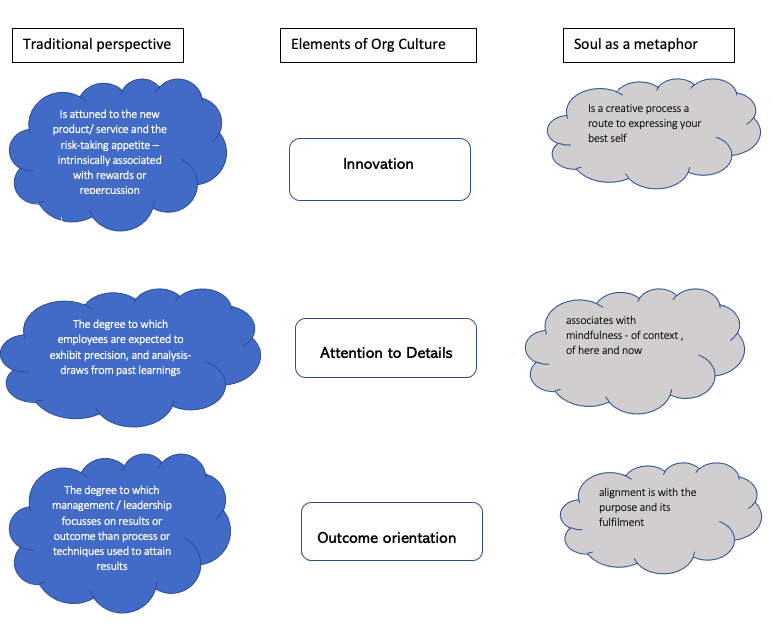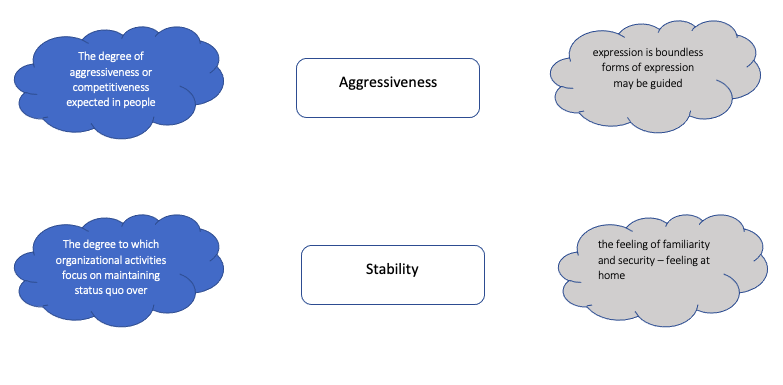On a casual dinner with friends, a few years ago, I was watching a friend’s toddler (a year and a half or so) display some really interesting traits – she would dexterously keep her toys in the bag that her mother carried on being asked to stack them away, keenly observe the environment and conversations and give a strange empathetic smile when we caught each other’s gaze. I don’t think she followed the words, but it felt she understood the expressions. The mother shared stories of her empathetic behavior with kids her age, and someone on that dotingly said – she is an old soul!
That statement lingered on my mind for a while and has often surfaced in shadows, each time I think or write about organizational culture. I pen down those thoughts here –
Sociology defines culture as the languages, customs, beliefs, rules, arts, knowledge, and collective identities and memories developed by members of all social groups that make their social environments meaningful.
In that context, “memories” and the purpose of “making social environments meaningful’ stand out to me, as against a set of common beliefs and attitude that guide behavior, or Deal and Kennedy’s often quoted – the way things get done around here (organization).
Gareth Morgan in his book Images of Organization brings out the metaphoric representation of organizations beautifully; I have often reminisced that culture is more akin to the Soul , a perspective that individuals experience rather than a set of norms that is prescribed by founders, or management. The soul feels and imagines, its relatability is as much to future and aspirations, as it is to the past. An organization’s culture too, is not an intellectual enterprise of articulated values and norms but built up of experience and hope and ambition of the future.
An organization’s culture is beyond the physicality observable by senses (the space). It also transcends the conceptualization of the mind, it is the soul that is essentially experiential, not as a spirit but ambiguous and one that draws its own meaning. Its not a cult, its an inclusion of several identities and how they relate to each other.
In short Culture to me is a living entity, it evolves and develops with the people interpreting and experiencing it, and therefore it’s not a run to an end state. This also stipulates then that organization cultures are a continuous process more incremental in nature than being looked upon as transformational interventions. It’s when organizations understand that there is a bigger picture, and yet are able to practice mindfulness.
While there are several approaches to define and establish organization culture, if we examine a set of key characteristics, that encompass most of these elements, it may become clearer to observe culture as a soul.



Key Messages:
- That culture is dynamic and needs to consider perspectives from time to time and evolve
- That it is felt and needs to be measured in experiences
- That personification is a way to express our perspective and it is ok to be accepting of different approaches to culture.
- That culture is deeper than ways of working and communication
For the soul the journey is important the destination is an outcome.
Disclaimer: The views expressed and contents in the article belong
to the author and doesn’t represent the views of the her organisation
and its affiliates companies.